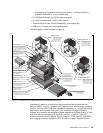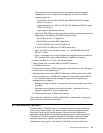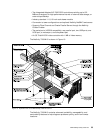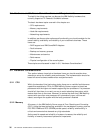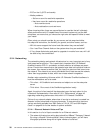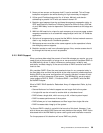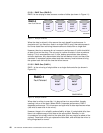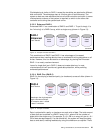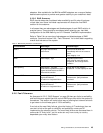
36 J.D. Edwards’ OneWorld B73.3 and Windows Terminal Server
5.1 Hardware and Software Considerations and Requirements
To simplify the sizing overview, we discuss the IBM Netfinity hardware that
currently supports J.D. Edwards’ OneWorld software.
The basic hardware topics covered in this chapter are:
• CPU requirements
• Memory requirements
• Hard disk requirements
• Networking requirements
In addition, we discuss other options and functionality you should consider for the
overall stability, availability and reliability of your customer’s business. These
items are:
• RAID support and IBM ServeRAID Adapters
• Fault tolerance
• Backup and recovery process
• Maintenance and service
• Performance
• Physical configuration of the overall system
These topics are discussed in detail in 5.2, “Hardware Considerations” .
5.2 Hardware Considerations
This section takes a close look at hardware items you should consider when
selecting a server for reliability and performance. The implementation should be
based on sound business needs versus cost/performance.
5.2.1 CPU
Within the bounds of Intel technology today, there are no realistic fault tolerance
capabilities available for CPUs. All IBM Netfinity Servers support at least two
processors with the higher end models supporting four processors. If a processor
should fail, then there is currently no way to avoid rebooting the system, which
means down time to the users. However, to reduce the down time, IBM Netfinity
servers with more than one processor will automatically upon a failure and
reboot, reconfigure the system with the faulty processor disabled.
5.2.2 Memory
All memory in the IBM Netfinity Server range is Error Checking and Correcting
(ECC). Using the latest technology available in the marketplace, memory such as
ECC EDO DIMM and ECC SDRAM provide speed, reliability and flexibility in
critical environments that demand very high standards.
As the need for speed and reliability of systems increases, the reliability and
flexibility of memory becomes of paramount importance.




